Science
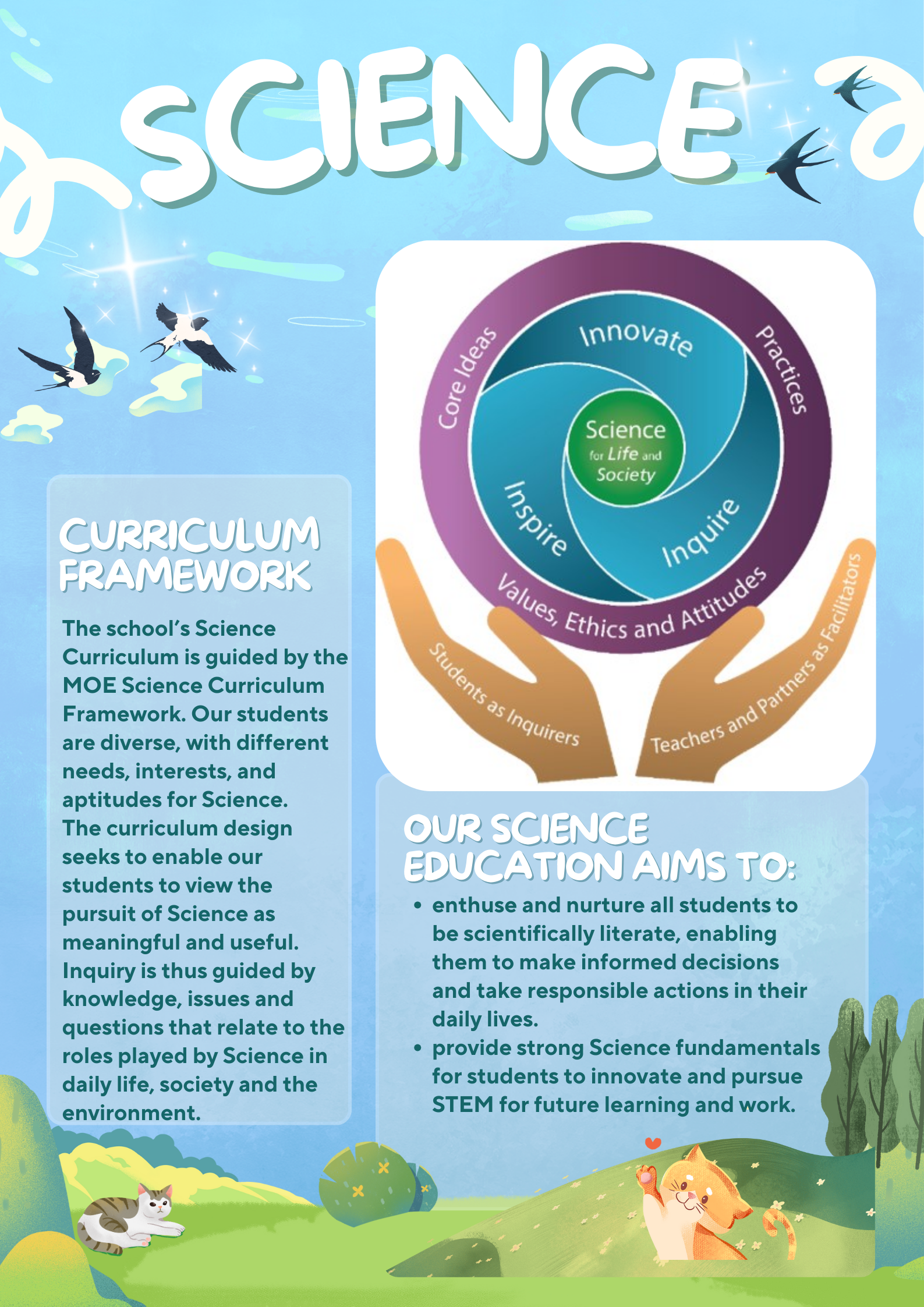
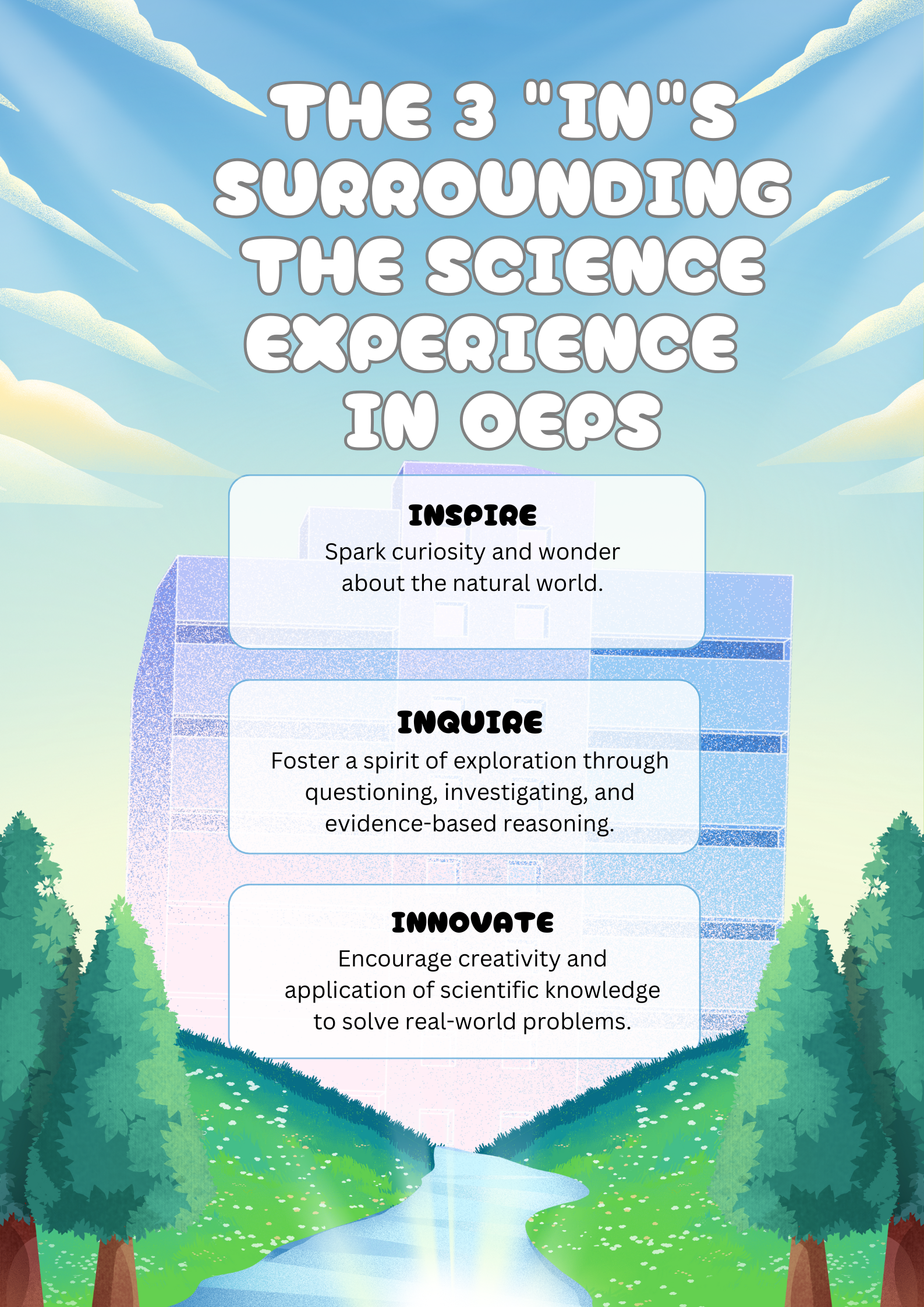
SCIENCE PROGRAMMES
Our Science programmes are structured to provide opportunities for our students to explore, investigate and discover knowledge. We want our students to be curious and concerned about their surroundings. We seek to fuel this spirit of inquiry and ultimately want our students to enjoy Science and value this discipline as an important tool in understanding and relating to their natural and physical world.
P3 Grow a Seed

• Our Primary 3 students had a wonderful time deepening their understanding of plants through a hands-on activity—growing their very own seed! As part of the "Every Child a Seed" programme by NParks, each student received a plant starter kit to kickstart their planting journey.
• This meaningful experience allowed students to not only learn about the plant life cycle, but also to appreciate the patience, care, and effort required in nurturing a living thing. From planting the seeds to watching the first sprouts emerge, students experienced the challenges and the joy of growing a plant.
• It was a valuable opportunity to connect Science learning with real-life experiences —fostering responsibility, curiosity, and a deeper appreciation for nature.
P3 Grow a Mealworm Beetle

• Our Primary 3 students had a hands-on opportunity to explore the topic of Life Cycles of Animals by growing their very own mealworm beetles. Throughout this learning experience, students observed the complete metamorphosis of the mealworm—from larva to pupa, and finally to adult beetle.
• They were excited to witness each stage up close, with many expressing amazement at the transformation process. This real-life observation deepened their understanding of life cycles and sparked meaningful conversations with their peers as they shared their observations and discoveries.
• It was a fun and engaging way to nurture curiosity and bring Science learning to life!
SCIENCE LEARNING JOURNEYS
P3 Learning Journey to the Zoo
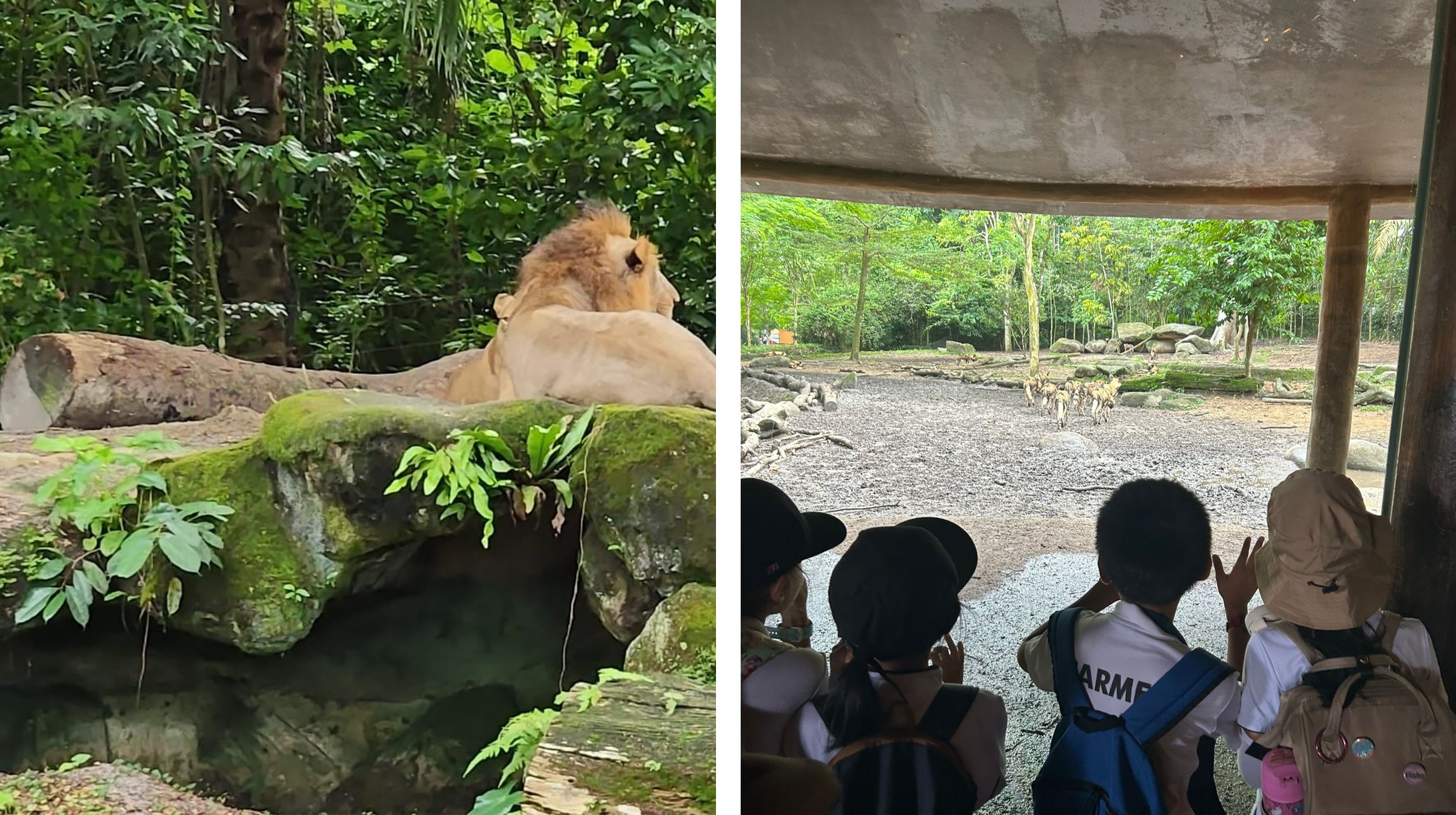
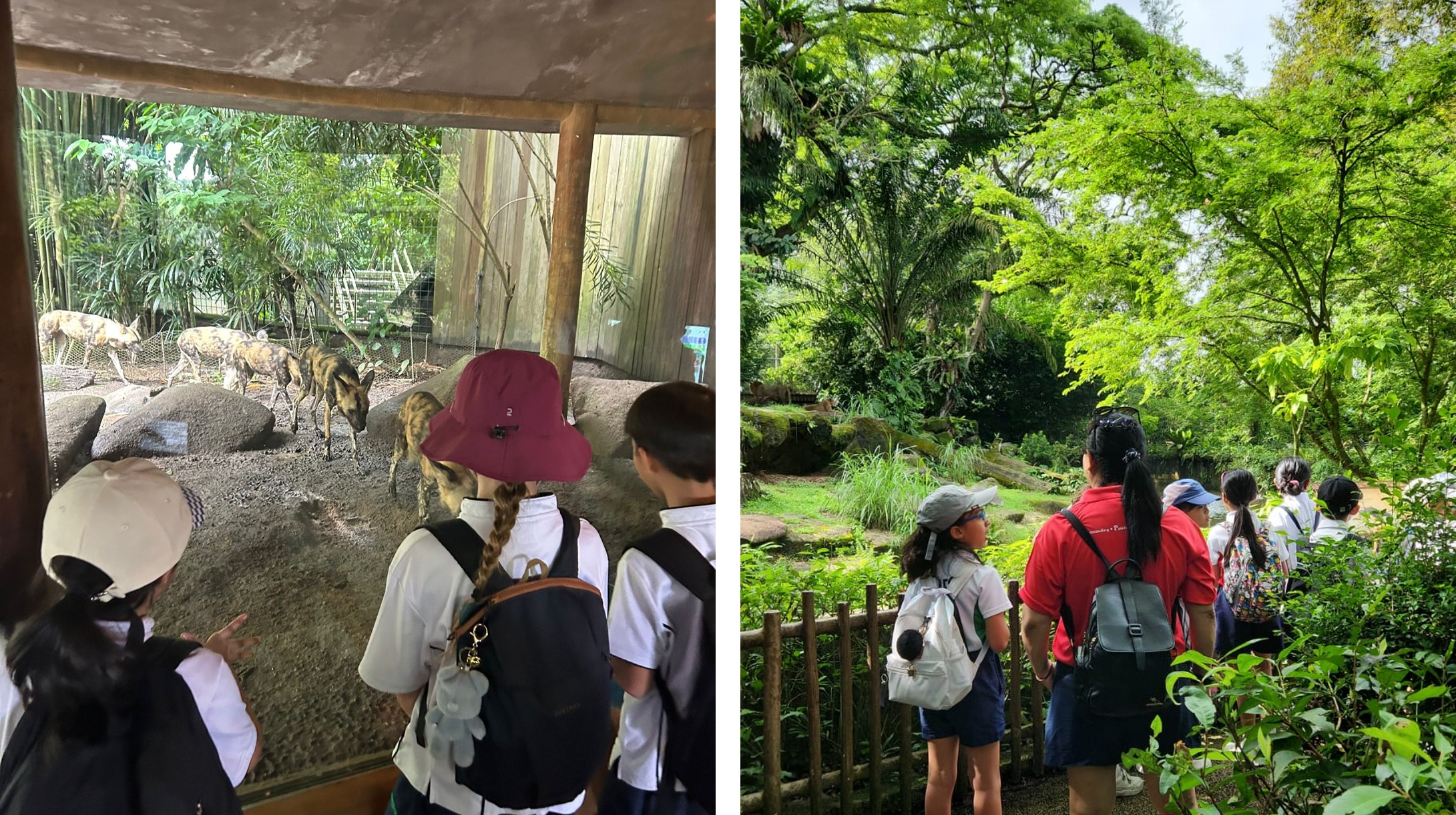
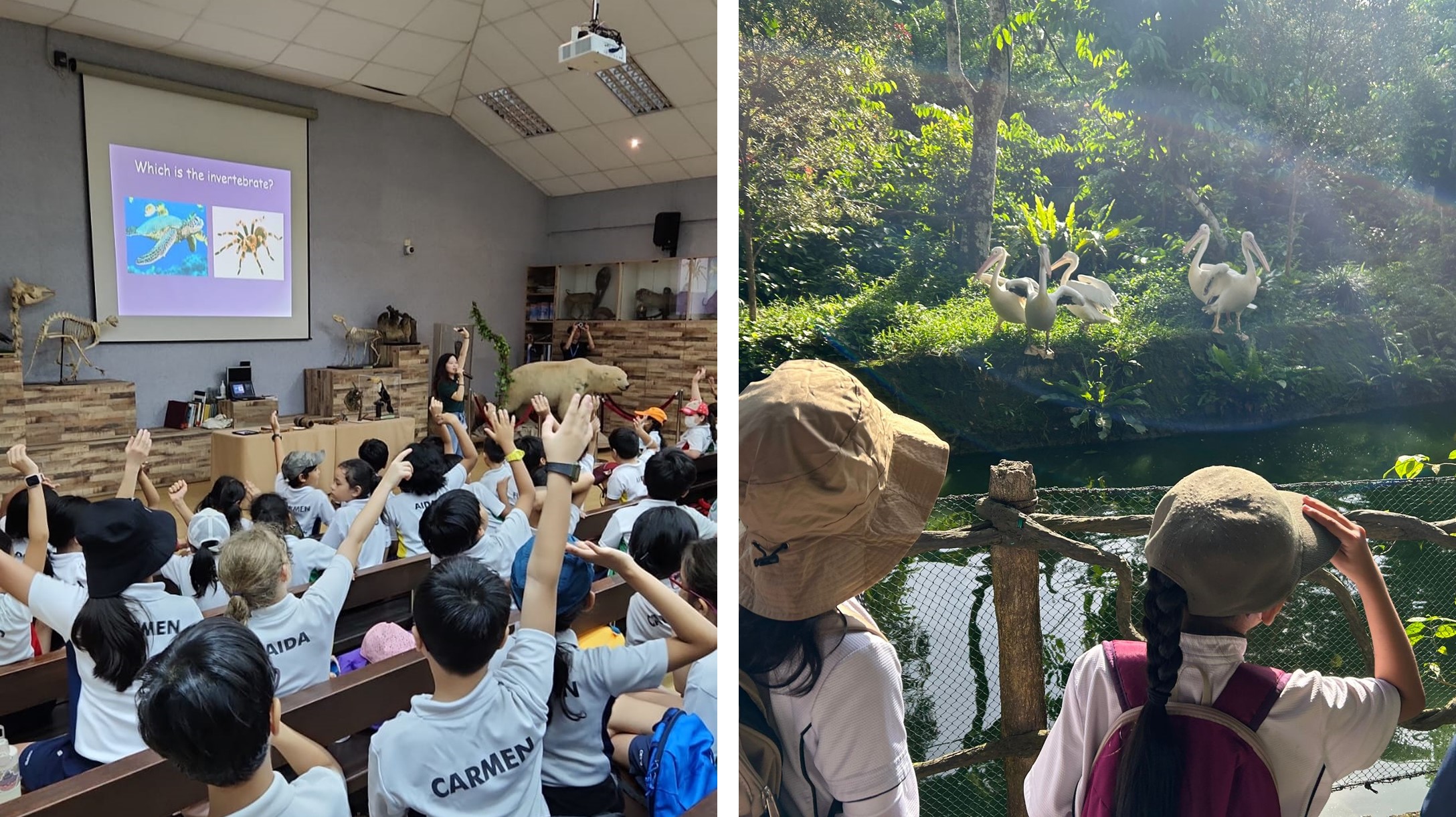
P4 Biodiversity Learning Journey to Botanic Garden

• Students explored the Singapore Botanic Gardens and experienced learning in nature! During the journey, they discovered how plants are classified and studied different plant parts and their functions. They compared flowering and non-flowering plants, and observed mosses, ferns, fungi, and water plants up close.
• Through hands-on exploration, students also examined different types of leaves and applied what they had learnt in class in a real-life setting. This immersive experience strengthened their understanding of the natural world and developed their observation and classification skills.
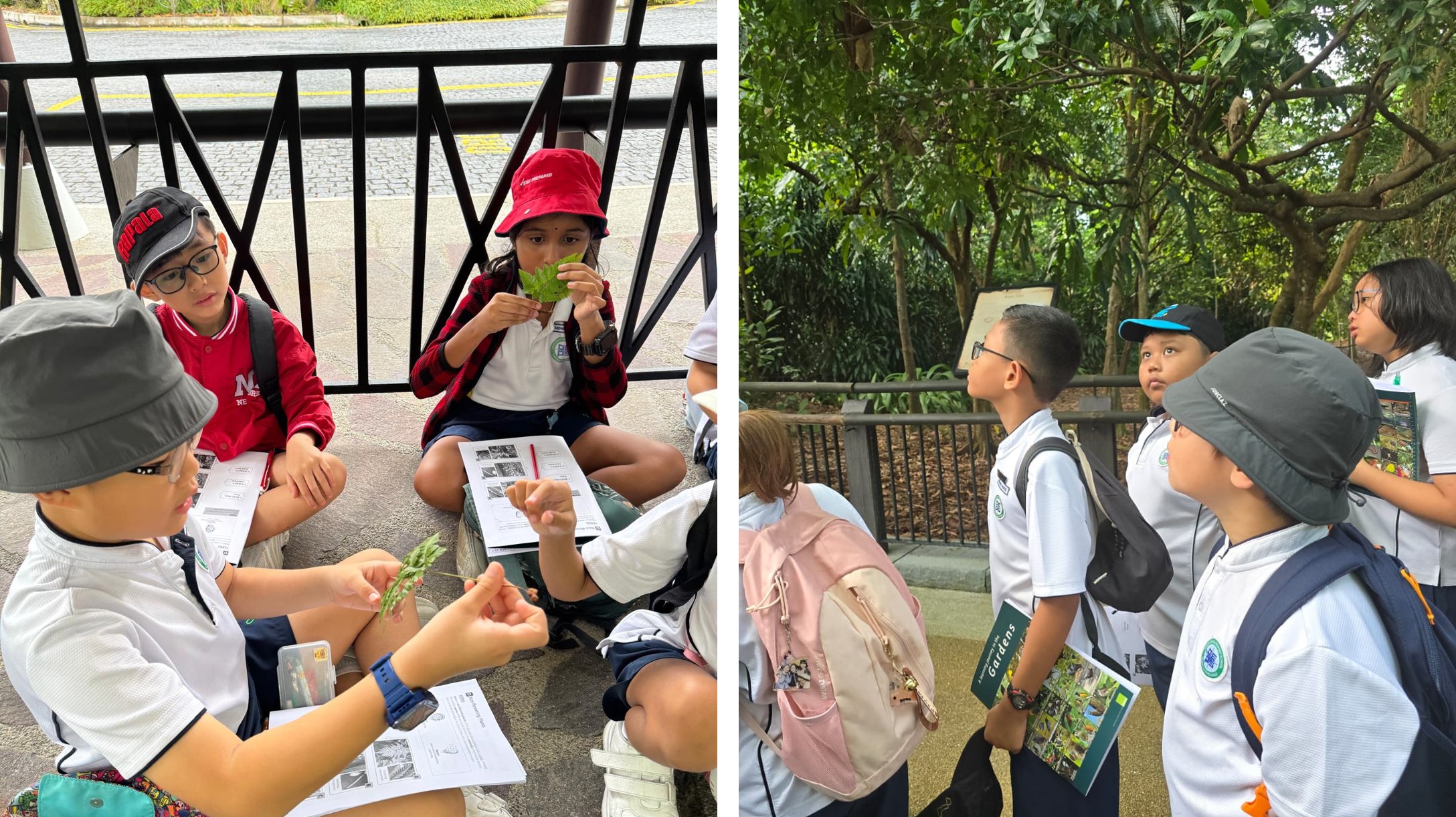
P6 Learning Journey to Science Centre: Energy Lab Workshop
• Our Primary 6 students visited the Science Centre for an exciting Energy Lab workshop. Through hands-on activities, they explored different forms of energy and discovered how most energy sources originate from the sun.

• Students worked in teams to build marble machines, demonstrating how energy converts from one form to another — such as potential energy changing into kinetic energy. The experience not only deepened their understanding of energy concepts but also emphasized the importance of energy conservation in daily life.

• It was a fun and meaningful learning journey that brought Science to life!
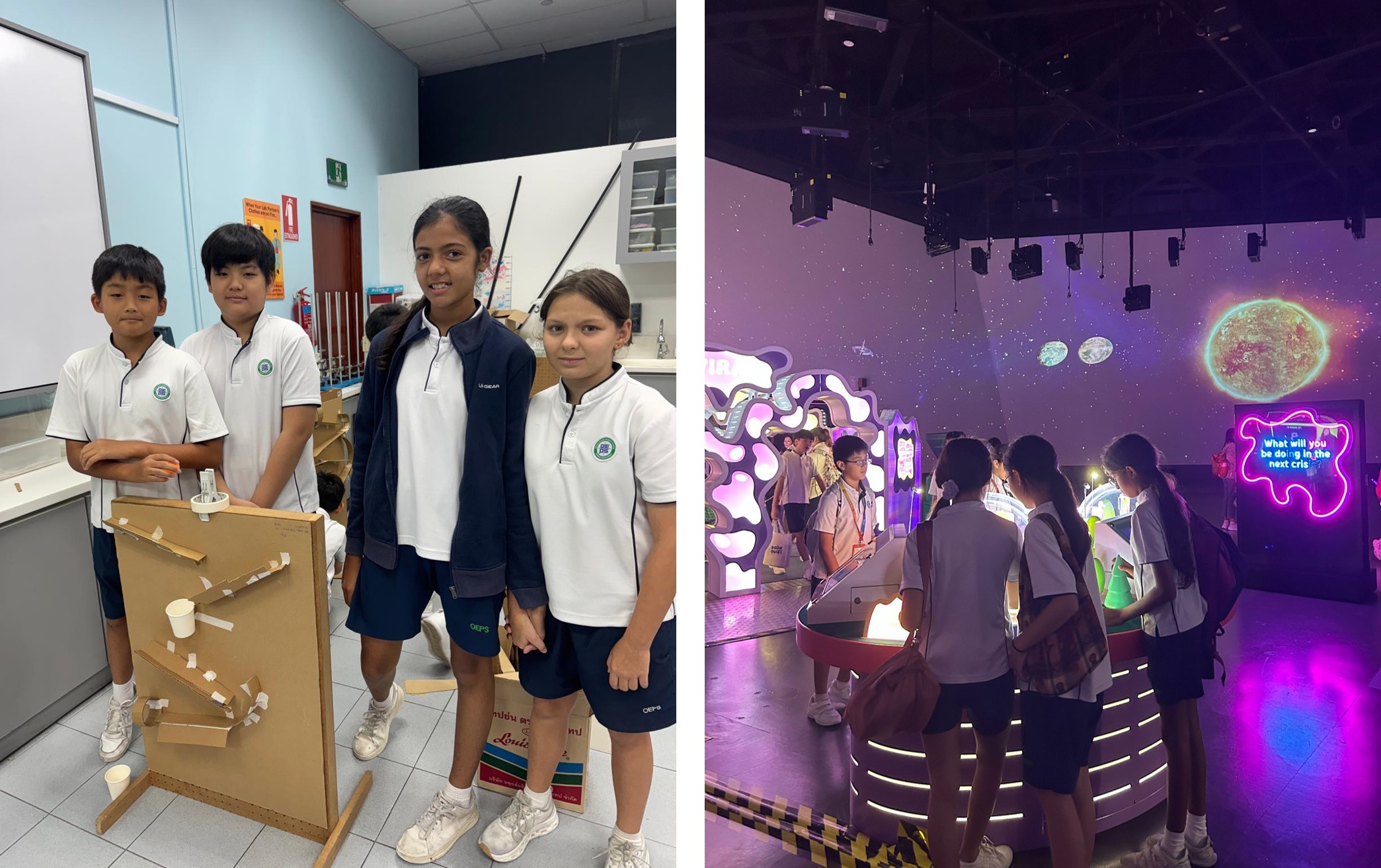
ENRICHMENT PROGRAMMES
P4 & P5 E2K
Selected Primary 4 and 5 students had the opportunity to dive deeper into scientific investigations through the E2K Science Programme. These sessions introduced them to more advanced science concepts and encouraged them to think and work like real scientists.
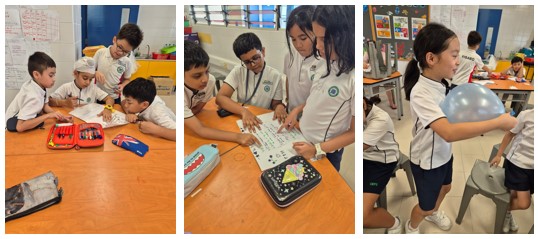
Through hands-on experiments and inquiry-based learning, students developed important scientific habits of mind, such as curiosity, perseverance, and precision. At the same time, they strengthened 21st century competencies like critical thinking, adaptability, creativity, and effective communication.
The programme also gave students valuable exposure to various science apparatus and experimental techniques. By working collaboratively in teams, they learned to tackle challenges together and problem-solve effectively when faced with obstacles in their investigations.
It was a meaningful and inspiring experience that nurtured both scientific thinking and teamwork!
P4 & P5 Digital Maker
• The Digital Maker Programme aims to nurture a new generation of digitally-savvy students who are confident creators. Through hands-on experiences, students are encouraged to embrace innovation, creativity, and collaboration to solve real-world challenges.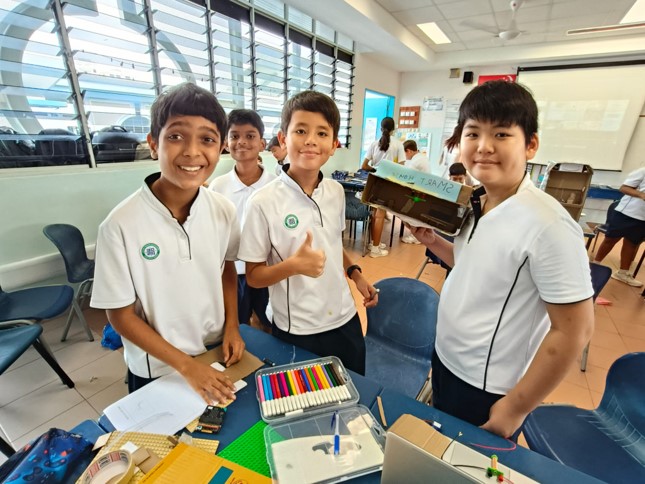

• At our school, Primary 4 and 5 students are introduced to coding and computational thinking through the use of the micro:bit—a pocket-sized programmable device. Guided by the Design Thinking process, students work in teams to design and develop prototypes that address authentic, everyday problems. This empowers them to become problem-solvers and change-makers in an increasingly digital world.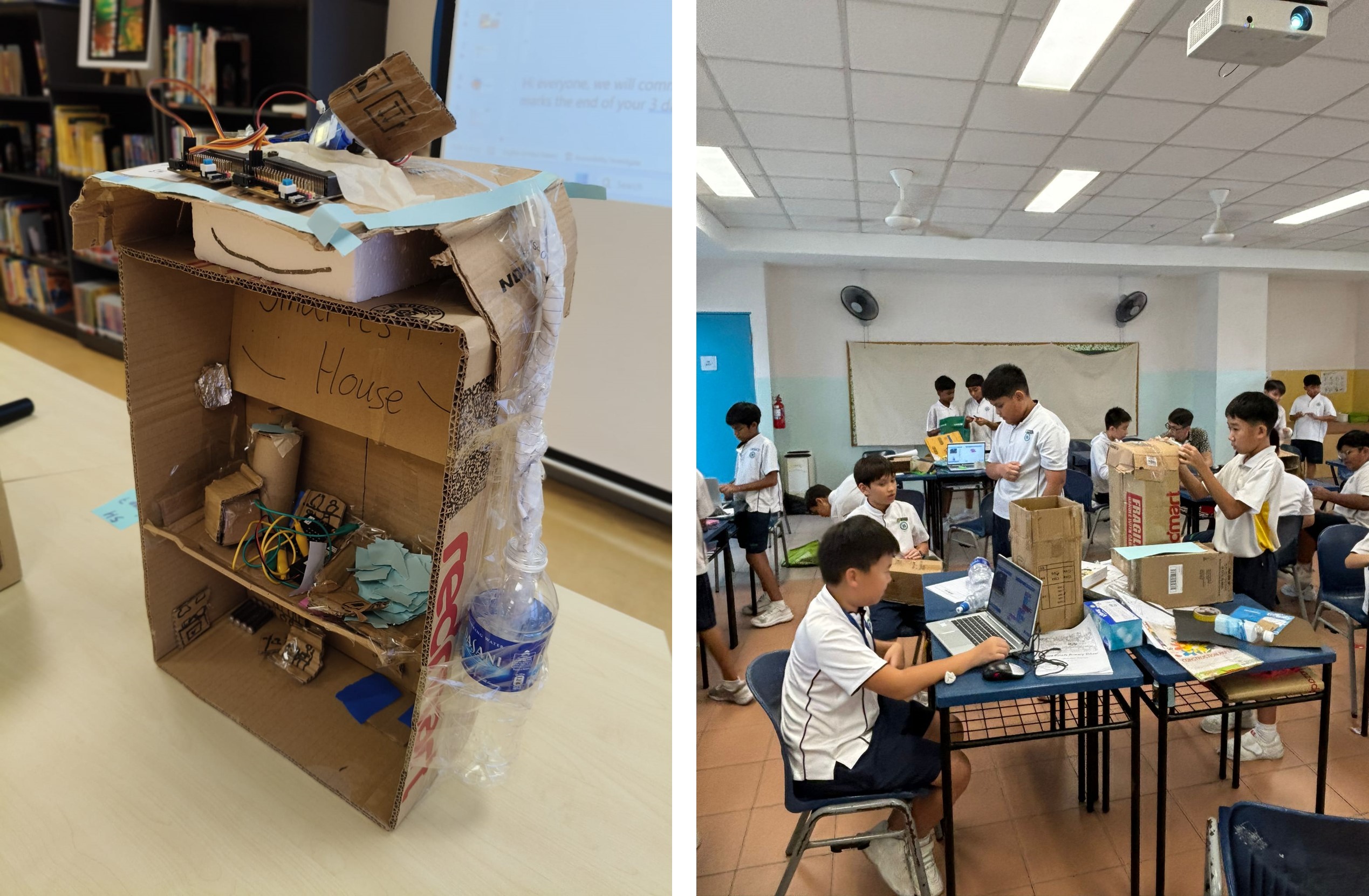
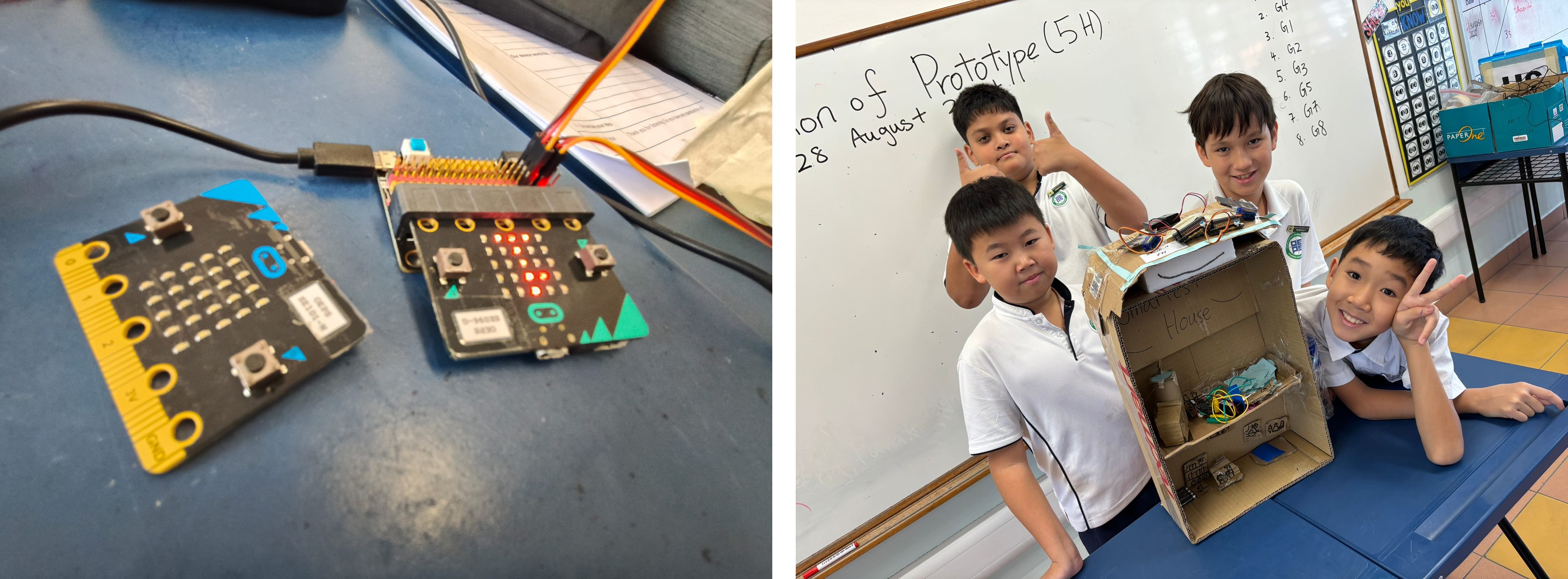
e-THINK© Challenge
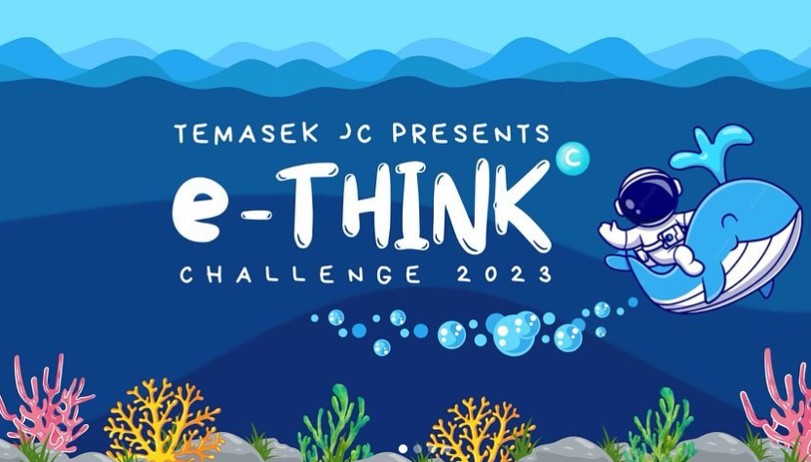
The e-THINK© Challenge is an annual digital video competition in Science, organized by Temasek Junior College. It aims to engage primary school students by encouraging them to use provided materials and various ICT tools to creatively explore and explain scientific phenomena. Participants are invited to produce original and innovative video content that showcases their understanding of science through fresh and engaging approaches.

